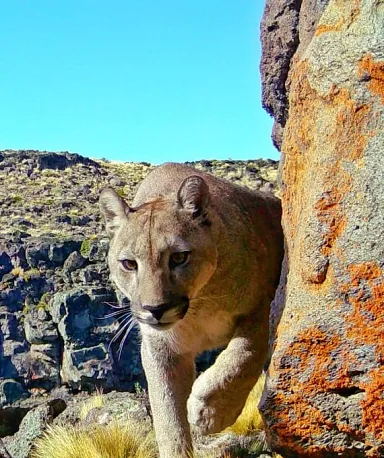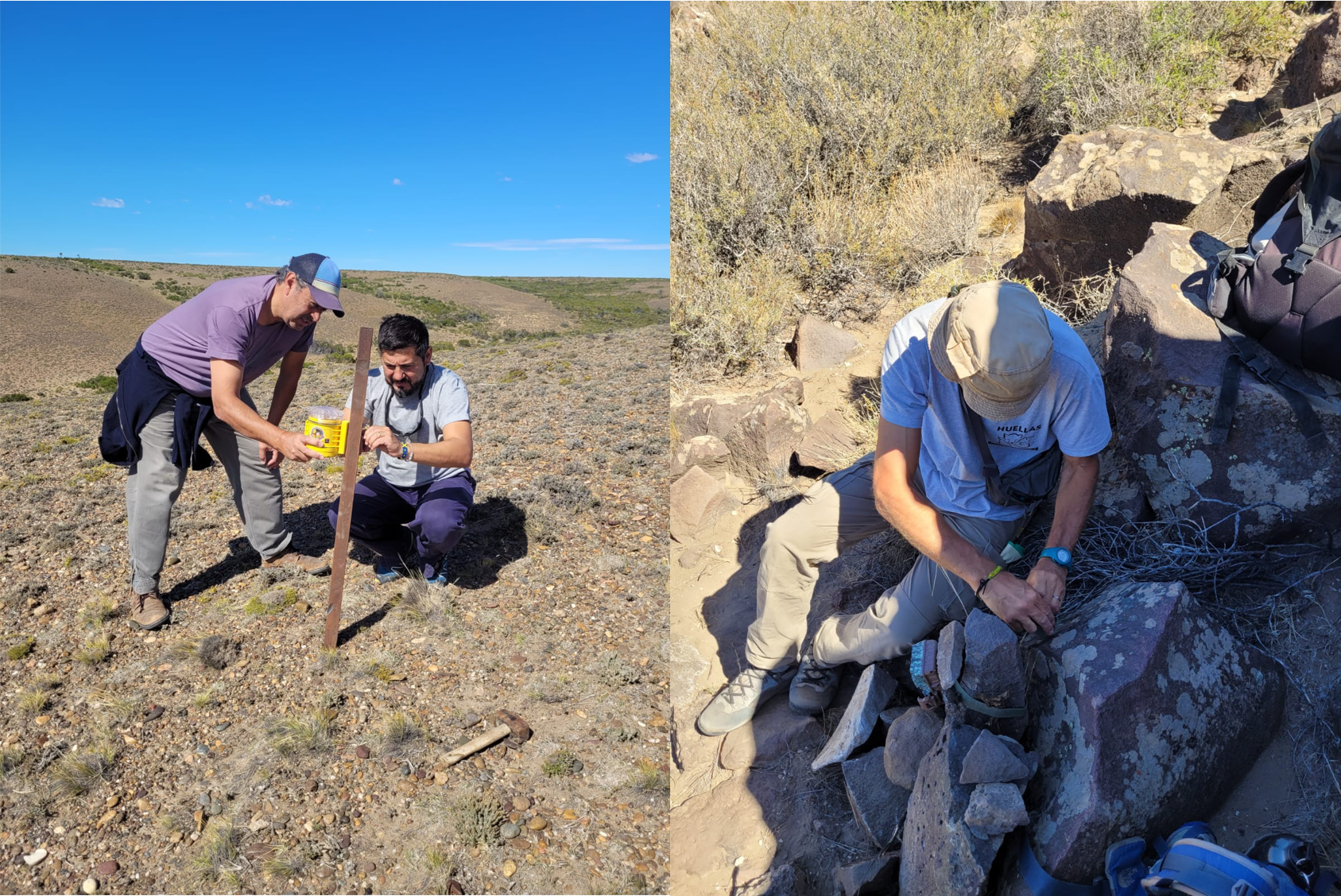
Patagonia Wild Cats Project
Research and Conservation of Patagonia's pumas and small cats
Research
The Patagonia Wild Cats Project aims to address the threats faced by Argentina's wild felids, such as overgrazing and hunting, while adding to our basic knowledge of little known small cat species.
- Focus Species: Leopardus geoffroyi (Geoffroy’s Cat) , Puma concolor (Mountain Lion) , Leopardus colocolo (Pampas Cat)
- Location: Patagonian steppe
- Project Status: Ongoing
- Project Start: 2024
Help us continue to fund projects like this one:
Overview
In Argentina’s Patagonian steppe, the arrival of the sheep industry to Patagonia profoundly modified its natural habitats and caused dramatic changes in wildlife, including the top predators and the most abundant large prey. As one of the world’s top sheep wool exporters, Argentina has extensive sheep ranches, which have significantly transformed the landscape. Land clearing for these ranches has reduced natural vegetation and displaced native herbivores like guanacos, often leading to conflict with ranchers when wild felids prey on livestock. Tooday, wild felids like pumas (Puma concolor), Geoffroy’s cats (Leopardus geoffroyi), and pampas cats (Leopardus colocolo) face mounting threats from overgrazing and hunting.
The need for this project is clear: despite the pressures on these felids, we still lack essential data on their distribution and behavior, which limits our ability to manage and reduce human-felid conflicts effectively.

This project aims to understand the current distribution and population status of the wild carnivores of the Argentinean Patagonian steppe, identify the major threats to their conservation, and start actions to mitigate those threats, with emphasis on pumas (Puma concolor) and the only two small cats living in these vast drylands, the Pampas cat (Leopardus pajeros) and the Geoffroy’s cat (Leopardus geoffroyi).
Specific goals
- Assess Threats: Quantify the impact of ranching activities on pampas cats and Geoffroy’s cats, including factors driving conflict with humans.
- Map Conflict Factors: Identify environmental and human factors contributing to wild felid presence and conflict hotspots, supporting managers in predicting future conflict areas.
- Test Mitigation Methods: Evaluate non-lethal techniques to prevent livestock predation.
Community Outreach: Raise awareness of wild cats' ecological roles in Patagonia among local communities.
Our Methods
- Camera Trap Surveys: Monitor wild cat populations in protected areas and ranchlands, helping to map species distributions across Santa Cruz province.
- Local Collaboration: Work with rangers and local communities to implement and test conflict mitigation measures.
- Community Engagement: Conduct interviews and workshops with residents and officials, fostering collaboration.
- Technology for Data Collection: Develop a mobile app for ranchers to report felid sightings and depredation events, enabling data collection and conflict mitigation directly from the field.
- Mitigation Strategies: Assess the effectiveness of non-lethal techniques like fox lights and livestock protection dogs to reduce conflicts with felids.

Why This Matters
The Patagonia Wild Cat Project's data collection and community engagement will provide vital insights into felid distribution and conflict trends in Patagonia, essential for designing effective conflict mitigation strategies and promoting coexistence within this sensitive ecosystem.

Our data collection so far has shown that both the Geoffroy’s cat and the Pampas cat seem to be uncommon, at least in the southernmost Argentinean Patagonia province of Santa Cruz and also, that they are less common than pumas and chilla foxes.
Our work also explores the impacts of free-ranging dogs, and our camera trap images highlight that they are a particular threat to wild felids near proximity of urban areas.
The PCWP seeks to assess the impacts of free-ranging dogs on wild cat habitat use and data collected so far highlights that dogs are a threat to the conservation of wild carnivores in Patagonia, especially near urban areas. In addition to camera traps, the project also uses interviews with local ranchers to inform data collection and outreach efforts. These formal and non-formal interviews revealed that small cats, especially the Geoffroy’s cat, are still commonly persecuted by ranchers because they are perceived as a threat to new born lambs and chickens.
Following several incidents of wild cat-vehicle collisions, the PWCP has launched an international campaign to encourage drivers to slow down and prevent future collisions. Lead researcher Dr. Mauri Lucherini and his team are also leading workshops with ranchers to increase awareness about the use of deterrents to prevent attacks on livestock (livestock protection dogs and light-based deterrents). Researchers are also surveying the spatiotemporal activity patterns of free-ranging dogs in rural areas towns and villages in the southern Patagonia area of Puerto Deseado.

Project Partners
The Patagonian steppe is a very large territory; thus, to tackle the challenge of covering such a huge area, we are actively promoting collaboration with other researchers, governmental agents, park rangers, and conservation practitioners.
The Project Team includes researchers and doctoral students from Felidae, including Project PI Mauro Lucherini, GECM, INBIOSUR, Universidad Nacional del Sur – CONICET, SIGecco, Universidad Nacional de la Patagonia Austral, Unidad Académica Caleta Olivia, and Centro de Investigaciones Puerto Deseado.
Further, we have been creating a network that will share information on cat presence but also awareness material, to amplify the reach of our project and facilitate achieving its goals. This network already includes: Programa Patagonia, Geoffroy’s Cat Working Group (GCWG), Fundación Somuncura (NGO), Sociedad Rural Deseado, and Universidad de la Patagonia San Juan Bosco.

